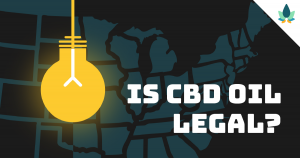No one likes to feel nauseous. It’s uncomfortable, can be anxiety-inducing, and may lead to loss of appetite, sometimes for an extended period of time.
Whether a side effect of a disease or treatment for the disease or simply an illness that’s causing the discomfort, nausea and a loss of appetite can be just as damaging as the disease itself. However, recent studies show that cannabinoid (CBD) oil may provide relief for nausea and could aid in appetite augmentation.
Using CBD Oil For Nausea Relief Isn’t New
In fact, in the 1870s and 80s, before the development of “modern” drugs, CBD was widely studied for its antiemetic (anti-nausea) properties. However, as new treatments were introduced, the research on CBD oil was moved to the back burner.
This has started to change.
A study published in the British Journal of Pharmacology, found that cannabinoids may be more effective than standard antiemetics in treating difficult to control, or difficult to treat, vomiting and appetite problems in both children and adults. (1)
To function at standard levels, our bodies need proper nutrients to sustain, heal, repair, and grow. If the body is not accepting those nutrients, additional pain is likely to occur. But, how can CBD – this all-natural compound, relatively free of side effects – help combat nausea, vomiting and limited appetite associated with specific drugs and diseases?
It Starts With Understanding What CBD Oil Is
CBD oil originates from cannabis. It has significant medical benefits but no psychoactive effects (you won’t get ‘high’). Its non-psychoactive elements make it appealing to people looking for relief from inflammation, pain, anxiety, and nausea.
The awareness around CBD’s health benefits is growing rapidly. It can be found in a number of forms such as capsules, liquid oil, creams (great for skin conditions!), edibles, pens, and more. Its flexibility in the methods of consumption means that CBD oil can be useful for people of all ages and whatever personal needs.

How Can CBD Help With Nausea?
Nausea is not a disease, rather a non-specific symptom. It could be caused by motion sickness, migraines, food, pregnancy, stress, or a myriad of other factors. Because it’s a symptom, it can be hard to find the proper remedy since many treatments are meant for specific causes of nausea. For example, dimenhydrinate is an effective treatment for motion sickness, specifically, which sometimes causes nausea. It’s unlikely that the drug would work to cure other causes of nausea. (2)
CBD targets the endocannabinoid system, a part of our brain that has both CB1 and CB2 receptors. When used, the non-intoxicating properties of CBD interact with the receptors in the endocannabinoid system, manipulating them to regulate the effects and feelings that lead to nausea and vomiting. Additionally, it can be effective in easing the anxiety that often comes with feeling nauseous. (3)
With the multitude of ways to consume CBD, some ways are better than others depending on the relief that an individual is looking for. For skin conditions, cream-based CBD oil can be the way to go. However, for nausea and other stomach problems, oral forms are best.
How To Take CBD Oil For Nausea (And Other Stomach Problems)
- Sublingually By holding CBD oil or isolates under the tongue, the mucus membranes in the mouth can absorb it rapidly.
- Capsules offer another consistent form of relief, since each dose is measured (per capsule). This method does take longer to work than isolates and may not be ideal for those in need of immediate relief from nausea.
- Swallowing & Ingesting is probably the most common and easiest way to consume CBD oil. By swallowing a few drops, the oil will pass through the digestive system to be metabolized by the liver.
- CBD Edibles is probably the most common and easiest way to consume CBD oil. By swallowing a few drops, the oil will pass through the digestive system to be metabolized by the liver.take the longest to feel the effects (about 30 minutes) but usually last longest because of the way the CBD is absorbed into the bloodstream. Edibles can be purchased from a variety of sources and often mask any flavor that may otherwise accompany the compound.
What About Appetite Augmentation?
A lack of appetite can be caused by dozens of reasons – and it’s not always a serious problem. If you have a cold, eating a large meal, or are pregnant, you might not feel very hungry. However, sometimes, more serious conditions like depression, anxiety, diseases, or stress can cause a lack of appetite that may be more serious.
Although there are a few pharmaceutical drugs that can be prescribed to help increase appetite, the side effects that can come with it often make people leery of taking the medicine
Our body’s endocannabinoid system naturally produces cannabinoids which work to regulate our body. CBD has been shown to work with the system to further produce natural cannabinoids which ultimately reduce inflammation, relieve stress, and ease the body, all of which can cause a lack of hunger. When the system is regulated, hunger may increase naturally.
THC, another compound found in cannabis, is often associated with “the munchies” as a reaction to the psychoactive properties. CBD interacts with our bodies differently, not causing a feeling of ‘high’ but offering many therapeutic effects.
CBD And Pregnancy
When talking and thinking about nausea, it’s easy to think of other applications. What about pregnancy? Can CBD be used to treat pregnancy-related nausea that plagues so many women?
To date, there has not been enough research to verify CBD’s safety for pregnancy.
Traditional cannabis use is discouraged during pregnancy. Small studies have shown an adverse effect on infant birth weights, delayed learning and memory once the child reaches school age, hyperactivity and an increased risk of depression and/or anxiety later in life. It is unknown whether this is due to THC specifically or to the compounds found in the cannabis plant as a whole (like CBD). (4)
It’s worth mentioning that many women have reported using THC and/or CBD during pregnancy without noted complications.
Because THC accumulates in breast tissue, it is believed to pass into breast milk, meaning it’s not recommended during breastfeeding either. CBD also accumulates in breast tissue, though its effects on nursing infants have not been studied.
The bottom line? CBD has not been confirmed safe to use during pregnancy and there’s still more research to be done.
Do I Need To Be Aware of Any Side Effects?
Many people don’t respond well to the side effects that come with prescription drugs or other traditional medicine. And it would be counterproductive to use something that would cause more nausea, right?
Good news! CBD doesn’t have any major side effects. However, it may cause fatigue and could cause lung problems if inhaled. Additionally, individuals can consume CBD oil and reap the benefits without the concern of becoming high.
For those who are wary of pharmaceutical drugs or those who are simply looking for a natural way to ease nausea, CBD oil has a promising place at the table.









